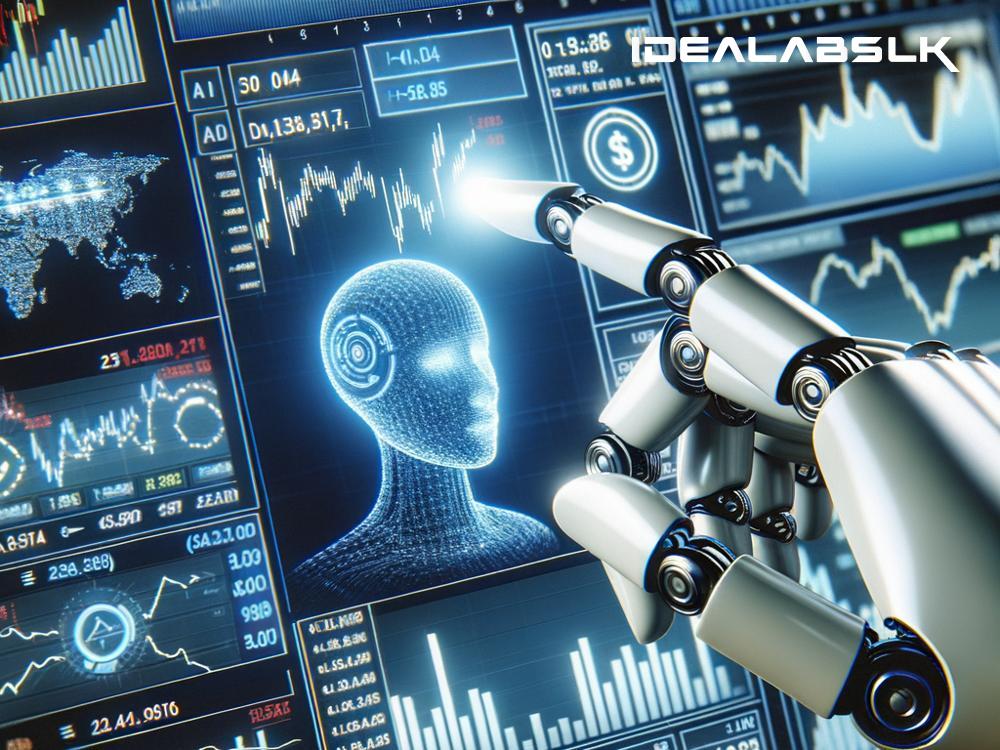How AI Automates Trading in Stock Markets: Simplifying Finance
In the fast-paced world of stock markets, making quick and informed decisions is the key to success. However, with the overwhelming amount of data and the complexity of market trends, this can be challenging for even the most experienced traders. Enter Artificial Intelligence (AI). AI is revolutionizing how trading is done in stock markets by automating complex processes, making trading more efficient, and potentially more profitable. Let's break down how AI accomplishes this in simple English.
Understanding AI in Trading
At its core, AI involves using computers to perform tasks that typically require human intelligence. This includes learning from data, making decisions, and solving problems. In the context of stock markets, AI systems analyze vast amounts of market data, learn from market trends, and make predictions or execute trades based on this analysis.
The Magic Behind the Scenes: Machine Learning
A key component of AI in trading is a technique known as machine learning. Imagine teaching a child to recognize different fruits by showing them examples. Similarly, machine learning involves training a computer algorithm on historical stock market data, allowing it to "learn" and make predictions about future market movements.
How AI Automates Trading
-
Data Analysis: One of AI's most significant advantages is its ability to swiftly analyze massive datasets – far beyond human capability. It scrutinizes past and present financial data, social media, news trends, and even global economic indicators to understand market movements.
-
Predictive Analytics: With the data analyzed, AI predicts future stock market trends. While no prediction is ever foolproof, AI's capabilities in identifying patterns can often lead to better-informed trading decisions than human analysis alone.
-
Automated Trading: AI can automatically execute trades based on predefined criteria or its predictive analytics. This means buying or selling stocks at the optimal time without human intervention, based on algorithms that aim to maximize profit or minimize loss.
-
Risk Management: AI helps in assessing and managing risk, a critical aspect of trading. By analyzing past performance and market conditions, AI can suggest or automatically implement strategies that balance potential gains with the risk involved.
The Benefits of AI in Trading
Efficiency and Speed: The stock market is volatile, where opportunities can appear and vanish in moments. AI's ability to process information quickly and act immediately can be a game-changer.
Emotionless Trading: Human traders are often swayed by emotions like fear or greed, leading to poor decisions. AI, devoid of emotions, sticks to the strategy, making rational and unbiased decisions.
Availability: The stock market operates 24/7 across different time zones. Humans need rest, but AI can work tirelessly, ensuring no opportunity is missed because of time constraints or geographical differences.
Handling Complexity: Some trading strategies are too complex or require processing too much information for humans. AI can handle these with ease, potentially leading to better outcomes.
Challenges and Considerations
Despite its advantages, AI in trading isn't without challenges. The quality of predictions and the success of trades depend heavily on the data's quality and the algorithm's design. Moreover, market conditions can change rapidly in ways that historical data may not predict, sometimes leading AI to make less-than-optimal decisions.
There's also the ethical and regulatory side to consider. The increasing use of AI in trading raises questions about fairness, transparency, and the potential for systemic risk if many trading algorithms act similarly in a crisis.
The Future of Trading
AI and machine learning are undeniably transforming stock market trading, making it more accessible and potentially more profitable for individuals and institutions alike. However, it's essential to remember that AI does not guarantee success and should be used as part of a broader trading strategy that considers the unique complexities of the stock market.
As technology evolves, we can expect AI's role in trading to grow, with more advanced algorithms and more sophisticated analysis enhancing its effectiveness. Whether you're a seasoned trader or a newcomer to the stock market, understanding and leveraging AI could be key to navigating the complexities of financial trading in the future.
In summary, AI automates trading in stock markets by analyzing data, making predictions, executing trades, and managing risk, all with unparalleled speed and efficiency. While it brings significant benefits, challenges remain, underscoring the importance of thoughtful and well-regulated use. As we look ahead, the integration of AI in trading promises to bring exciting developments to the financial world.

